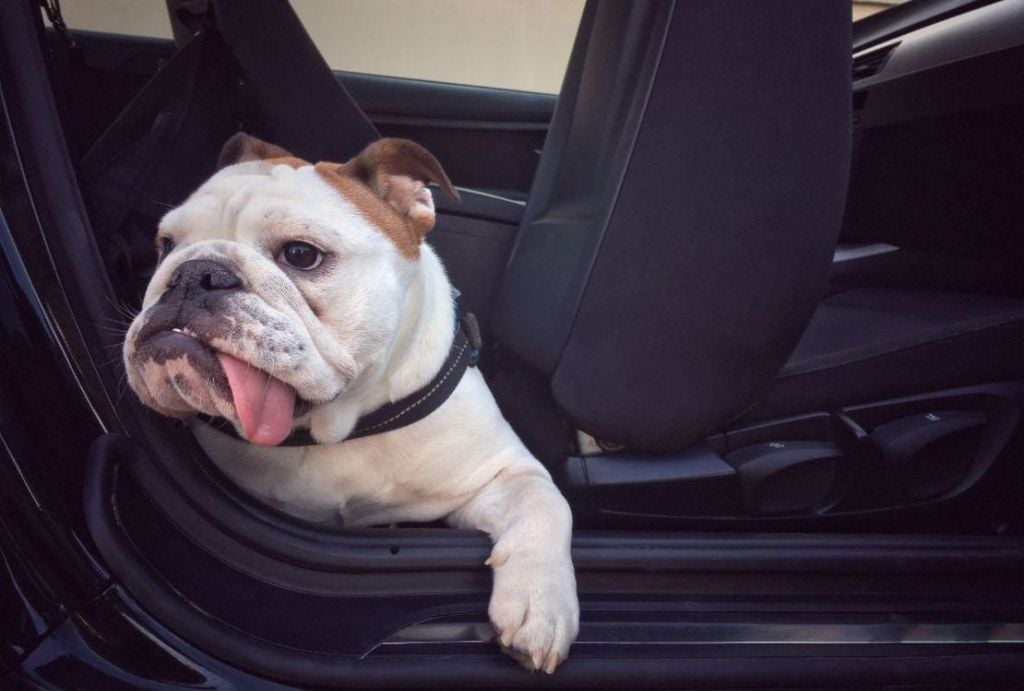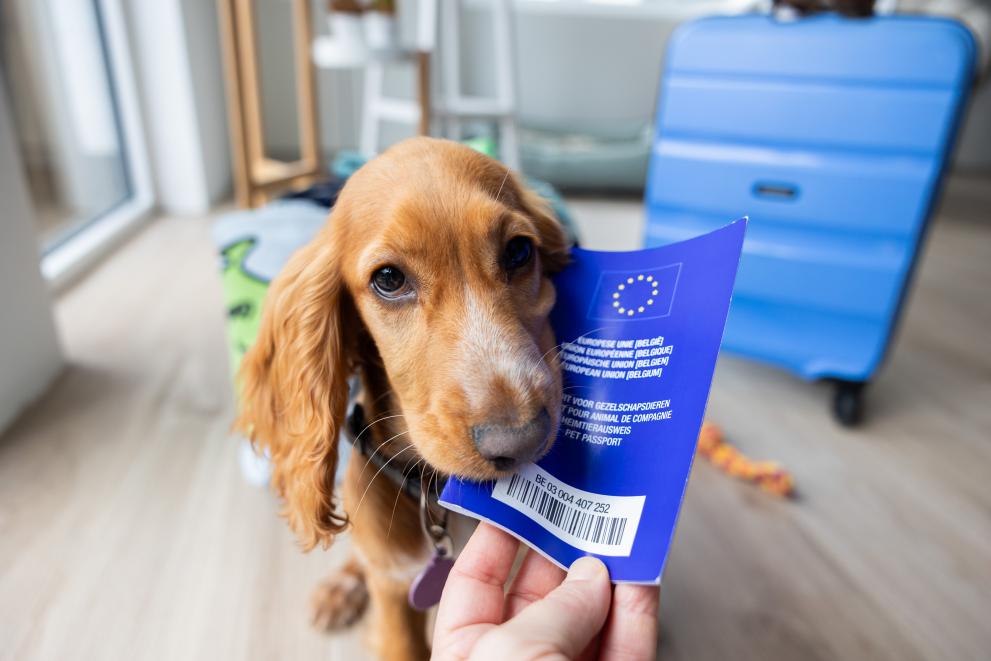Air Travel Regulations for Pet Transport to France (Updated Guide)
Introduction
France is a popular destination for travelers, expats, and international students alike — many of whom wish to bring their beloved pets with them. While France is generally pet-friendly, there are specific regulations you must follow when flying with a dog, cat, or ferret into the country. These rules are designed to protect public health, ensure animal welfare, and prevent the spread of diseases such as rabies.
In this guide, we will cover everything you need to know about pet air travel regulations to France, including required documents, vaccination rules, airline guidelines, restricted breeds, and practical tips to help make your journey smooth and stress-free.
1. What Types of Pets Are Allowed into France by Air?

Under French and EU regulations, the following pets can be imported into France by air:
-
Dogs
-
Cats
-
Ferrets
Other small animals (e.g., rabbits, rodents, birds) may have different requirements or restrictions and are subject to separate import conditions.
Each traveler may bring up to five pets, unless an exemption applies (such as participation in competitions or exhibitions).
2. Minimum Age and Vaccination Requirements
a. Minimum Age for Travel
Pets must be at least 12 weeks old to be eligible for international travel to France.
b. Rabies Vaccination
-
All pets must be vaccinated against rabies.
-
The rabies vaccine must be administered at least 21 days before travel and after the microchip is implanted.
-
The vaccine must be valid at the time of entry and recorded in the pet’s official documents.
Important: If your pet has not been vaccinated or the vaccine has expired, entry into France will be denied.
c. Recommended (but not mandatory) Vaccines
-
Dogs: Distemper, Parvovirus, Leptospirosis
-
Cats: Calicivirus, Herpesvirus, Panleukopenia
3. Microchip Identification
France, like all EU countries, requires microchipping for all dogs, cats, and ferrets entering the country.
Microchip Requirements:
-
Must be ISO 11784/11785 compliant, 15-digit, non-encrypted.
-
The microchip must be implanted before rabies vaccination.
-
The microchip must be readable by a standard scanner upon arrival.
If your pet has a different type of microchip, you must bring your own microchip scanner.
4. Required Documentation
a. For Pets Coming from Non-EU Countries (e.g., Vietnam, the US, Canada):
You will need:
-
Veterinary Health Certificate (EU Format):
-
Issued by an authorized veterinarian within 10 days before departure.
-
Must be endorsed by the national authority (e.g., USDA in the US, DAH in Vietnam).
-
Valid for entry into the EU for 10 days and for travel within the EU for 4 months.
-
-
Proof of Rabies Vaccination:
-
Including vaccine details, manufacturer, date, and validity.
-
-
Microchip Implantation Certificate
-
If not clearly listed in the health certificate.
-
-
Declaration of Non-Commercial Movement of Animals
b. For Pets Coming from an EU Country:
You will need:
-
EU Pet Passport
Issued by an authorized veterinarian in an EU member state, containing vaccination records and microchip details.
5. Airline Pet Travel Options
Most international airlines allow pet transportation in one of the following formats:
a. In-Cabin Travel
-
Only small pets under 8kg (including carrier) may travel in the cabin.
-
Carrier must fit under the seat and comply with airline dimensions.
-
Limited to one pet per passenger in most cases.
-
Advance booking is essential.
b. Checked Baggage (in Cargo Hold)
-
For pets that weigh over 8kg but less than 32kg (including carrier).
-
Travel in a climate-controlled area of the aircraft.
-
Must use an IATA-compliant hard-shell crate.
c. Manifest Cargo (Air Freight)
-
Mandatory if the pet is traveling alone or is a large breed.
-
This is usually handled by pet shipping companies or cargo services of airlines.
-
Most suitable for long-haul flights or restricted breeds.
6. Banned or Restricted Dog Breeds
France categorizes certain dog breeds into two categories due to their perceived risk level:
Category 1 – Banned from Entry
-
American Staffordshire Terrier (non-pedigreed Pitbulls)
-
Mastiff (Boerboel)
-
Tosa (non-pedigreed)
Category 1 breeds are strictly prohibited from entering France, regardless of age or training.
Category 2 – Restricted Entry
-
American Staffordshire Terrier (pedigreed)
-
Rottweiler
-
Tosa (pedigreed)
These breeds may be allowed entry only if the owner can provide:
-
Valid pedigree documents (FCI recognized)
-
Behavior/training certificates
-
Liability insurance
-
A French permit to own a dangerous dog (if staying long-term)
7. Step-by-Step Preparation Timeline

2–3 Months Before Travel:
-
Book your flight and confirm pet policy with the airline.
-
Implant microchip (if not done already).
-
Administer rabies vaccine and record it properly.
3–4 Weeks Before Travel:
-
Arrange an appointment with your veterinarian for health check and certification.
-
Begin crate training and desensitization for your pet.
-
Double-check all documentation (especially vaccine expiry dates).
5–10 Days Before Travel:
-
Obtain the official veterinary health certificate.
-
Prepare travel crate, bedding, food/water bowls, and travel tags.
-
Reduce food intake 6–8 hours before flight to avoid motion sickness.
At the Airport:
-
Arrive at least 3 hours before departure.
-
Present all required documents at the check-in counter.
-
Provide water and ensure pet is comfortable and calm.
8. Airlines That Fly Pets to France
| Airline | Pet Cabin | Cargo | Notes |
|---|---|---|---|
| Air France | ✔ | ✔ | Best option for France-bound travel |
| Lufthansa | ✔ | ✔ | Pet-friendly, reliable connections |
| Turkish Airlines | ✔ | ✔ | Affordable with stopovers in Istanbul |
| Qatar Airways | ✖ | ✔ | Allows pets as checked baggage or cargo |
| Emirates | ✖ | ✔ | Pets only in cargo |
| Vietnam Airlines | ✖ | ✔ | Pets only as checked baggage or cargo |
Always check the airline’s latest pet travel policy and make reservations in advance.
9. Estimated Cost of Flying Pets to France
| Service Type | Estimated Cost (VND) | Notes |
|---|---|---|
| Cabin | 5–10 million | Based on weight and route |
| Checked Baggage | 8–20 million | Includes crate fee |
| Cargo Shipping | 20–50+ million | Use of professional agent recommended |
Additional costs may include:
-
Vet fees
-
Microchip and vaccination
-
Pet travel crate
-
Translation & document endorsement
-
Customs clearance at destination
10. Customs and Entry Procedures at French Airports
Upon arrival in France, pets will go through customs and veterinary inspection. Officials will check:
-
Microchip (scanned on-site)
-
Valid rabies vaccination
-
Health certificate or EU Pet Passport
Potential issues to avoid:
-
Invalid or expired documents
-
Unreadable microchip
-
Travel before the 21-day post-vaccine period
-
Banned breed attempts
If the pet fails inspection, entry may be denied, or the animal may be placed under quarantine or returned to the country of origin at the owner’s expense.
Conclusion
Traveling with pets to France by air is entirely possible with proper planning and adherence to regulations set by the EU and French authorities. Whether your furry friend is joining you for a long-term stay or a temporary adventure, their safety and well-being must be prioritized throughout the journey.
By ensuring your pet meets all health, identification, and documentation requirements, you can enjoy peace of mind and a smooth arrival in France.
Read more:

